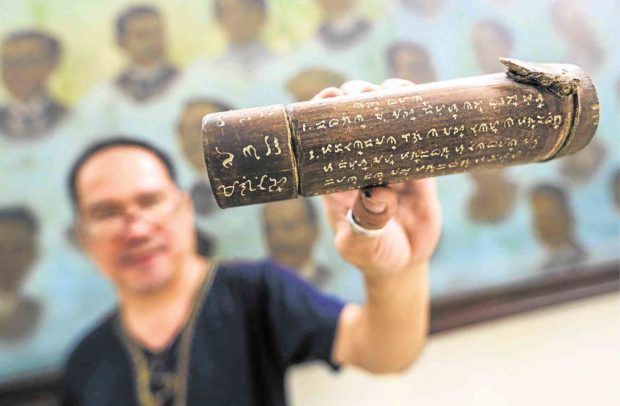
The House of Representatives has approved on third and final reading a bill that will protect, preserve and promote ancient writing systems such as the “baybayin,” whose characters are shown here carved on a bamboo stem. (LYN RILLON / INQUIRER)
MANILA, Philippines — The House of Representatives has approved on final reading the bill seeking to protect and preserve Philippine indigenous and traditional writing systems, such as Baybayin.
With 197 affirmative votes, zero negative, and no abstention, the lower chamber approved during Monday’s session House Bill No. 10657 or the “Philippine Indigenous and Traditional Writing Systems Act.”
Under the bill, the Department of Education (DepEd) and the Commission on Higher Education (CHED) are mandated to include indigenous and traditional writing systems in relevant subjects of basic and higher education curricula, and to create an elective or specialized course in higher education for the study of the same.
The measure also seeks to create or support activities that promote awareness of these writing systems, particularly during Buwan ng Wika.
It also calls for conduct of seminars, conferences, conventions, symposia and other relevant activities on the study of Philippine Indigenous and Traditional Writing Systems, as well as good record-keeping of relevant documents and preservation of oral evidence on these writing systems.
“It is time for our country to revisit our past through one of its cultural remnants, our indigenous and traditional writing systems, including pre-colonial writing system called Baybayin,” House Speaker Lord Allan Velasco said in a statement.
“Lost, but not forgotten, Baybayin, together with other indigenous and traditional writing scripts, should be preserved and promoted as part of the country’s resurgence,” Velasco added.
Velasco likewise underscored the need to promote, protect, preserve and conserve Philippine indigenous and traditional systems as “tools for cultural development, for instilling national pride, and for protecting Filipino cultural heritage and identity.”